Enter Password
Incorrect password. Please try again.
Go back to home
Project
Email Notifications
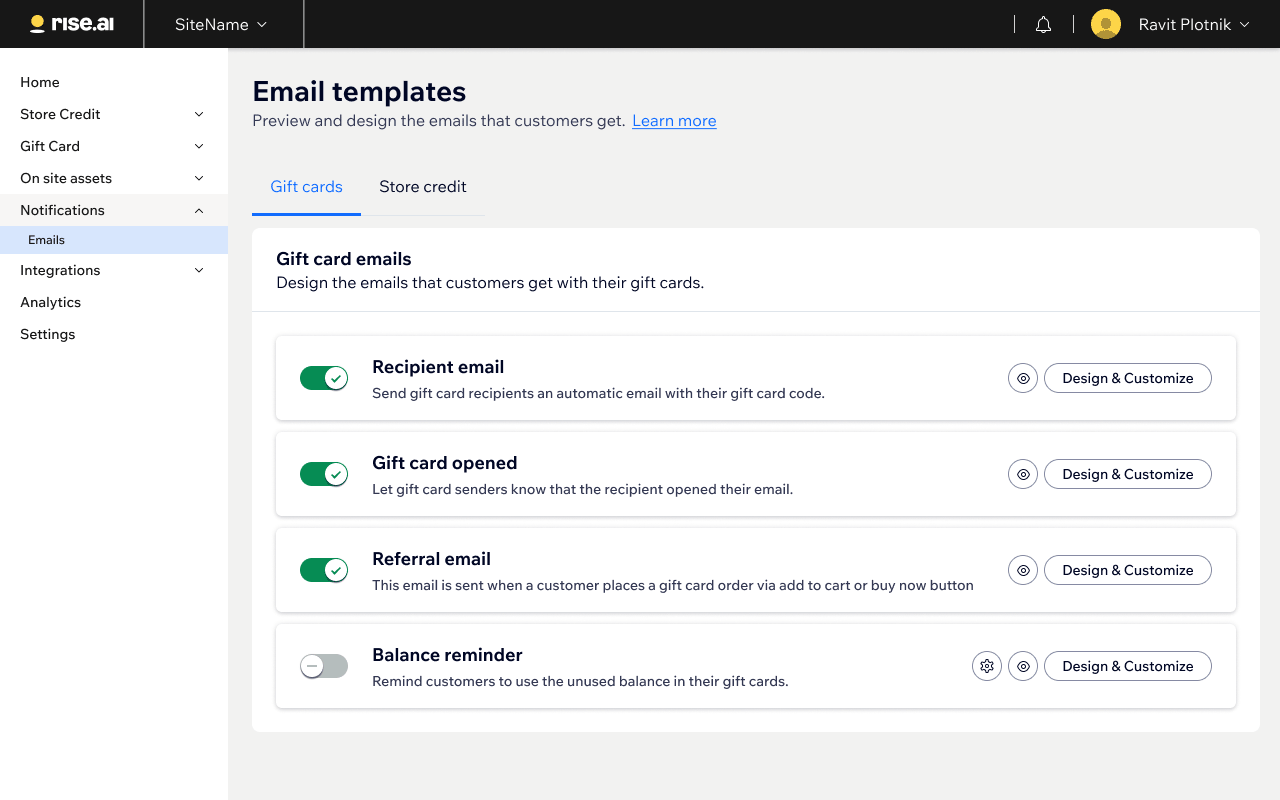
Rise Platform
overhaul
As part of Rise's post-acquisition pivot, we undertook an ambitious journey to revamp our entire
platform, serving thousands of users, including major enterprise accounts.
This significant endeavor required us to integrate Wix's infrastructure, essentially rebuilding
from the ground up while maintaining the legacy platform. All this had to be achieved within a
tight timeframe and with limited resources.
From the early stages of ideation, navigating without a dedicated product manager, to the
development of a comprehensive solution with full feature parity and beyond, we tackled one of
the most significant challenges the company has ever faced.
User research
In this case, user research was relatively easy since we had access to a large collection of
customer emails. I created a board with numerous email examples to analyze the various uses and
needs. Discussions with the business teams helped us understand current complaints and
requirements. Our analysis revealed that most merchants, from small businesses to large
enterprises, typically make minor modifications to their emails. Meanwhile, those requiring
extensive customizations usually rely on external email providers.
Considering these insights, we decided to develop a lean and intuitive solution with basic
customization options that cater to the majority of users. For more advanced needs, users can
edit the emails with code, and we also ensured support for third-party email providers. This
approach provides a great experience for all users, balancing simplicity and flexibility.
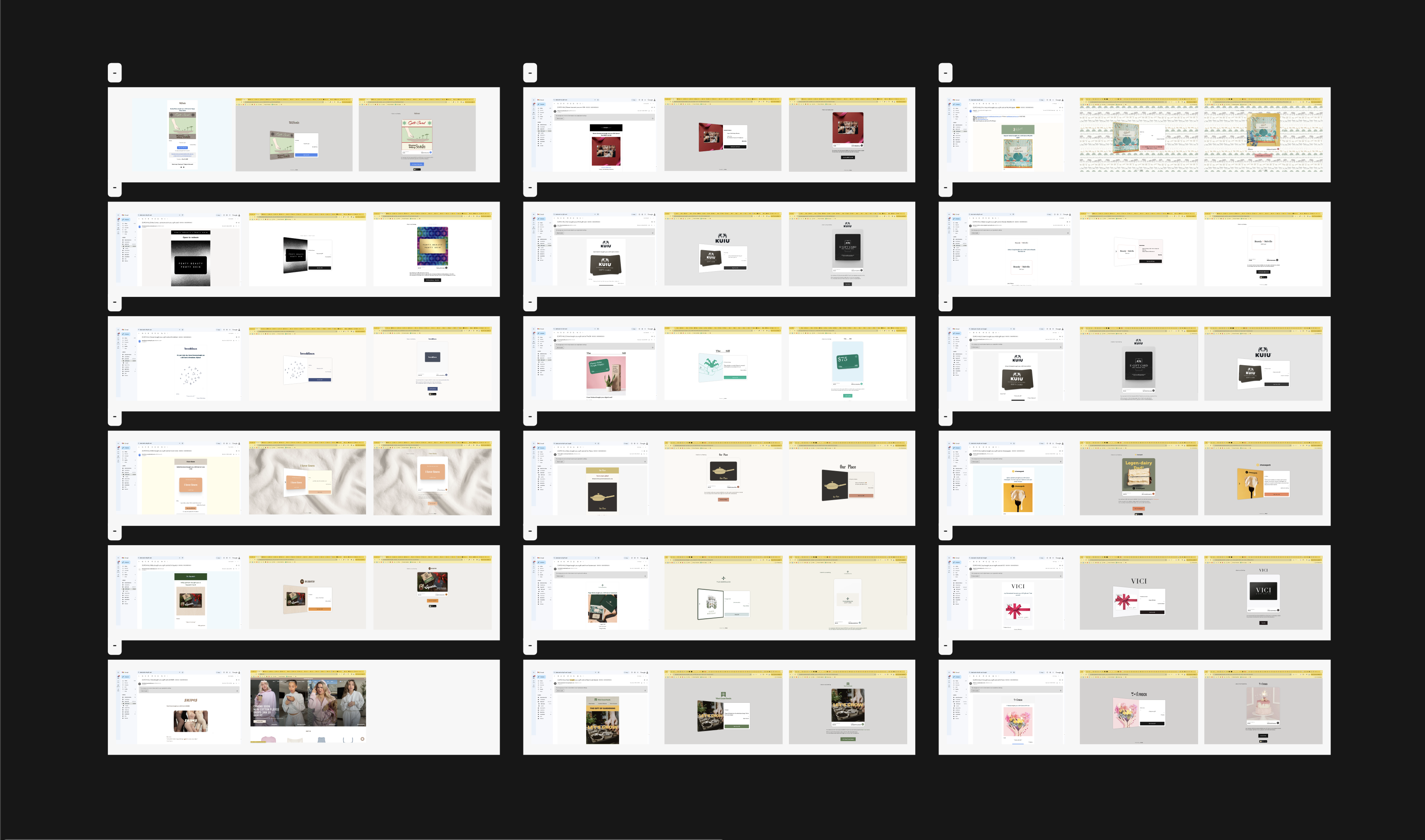
Preview of email research
Balancing the scope
We carefully considered the level of solution we wanted to offer our customers. Email functionality is essential for engaging with users and driving business outcomes, but our focus is not to become a full-fledged email service provider. To achieve this balance, we aimed to create a lean yet powerful tool that meets our users' needs without overextending our development resources.
Starting the Design Process
In this project, our goal was to develop a solution that felt robust despite significant limitations in our development capacity. We initially explored the idea of offering templates to provide users with a variety of options to assist them in getting started and give a sense of richness. However, we realized that since the builder is mostly content-based, this would not add significant value. Thus, we decided to focus on creating an intuitive and flexible email builder that maximized the impact of the limited customization options available.
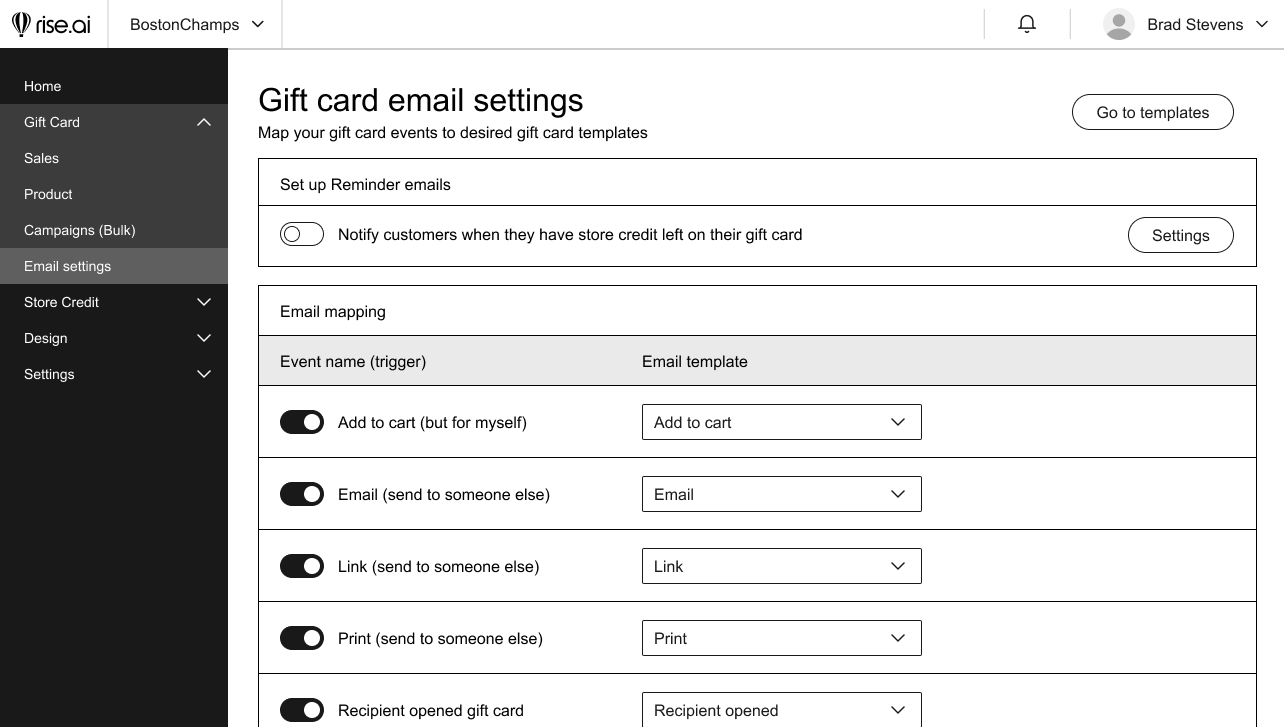
Exploring different templates ideas
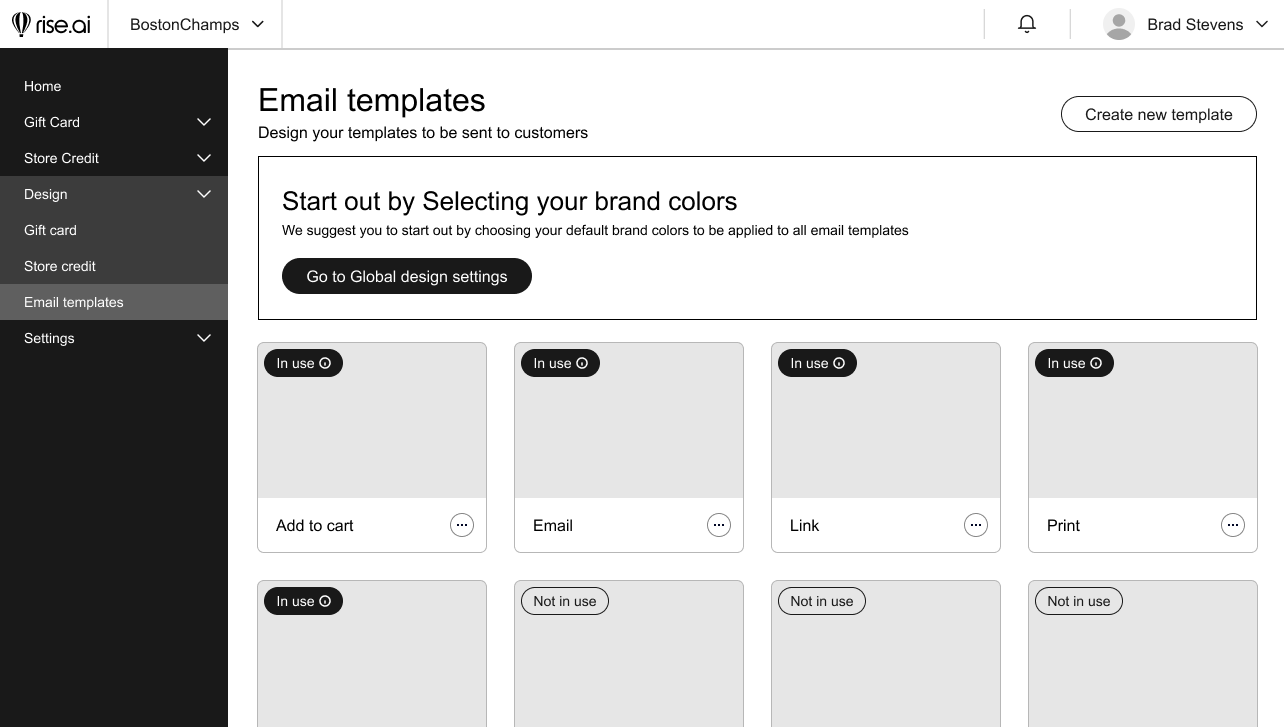
Exploring different templates ideas
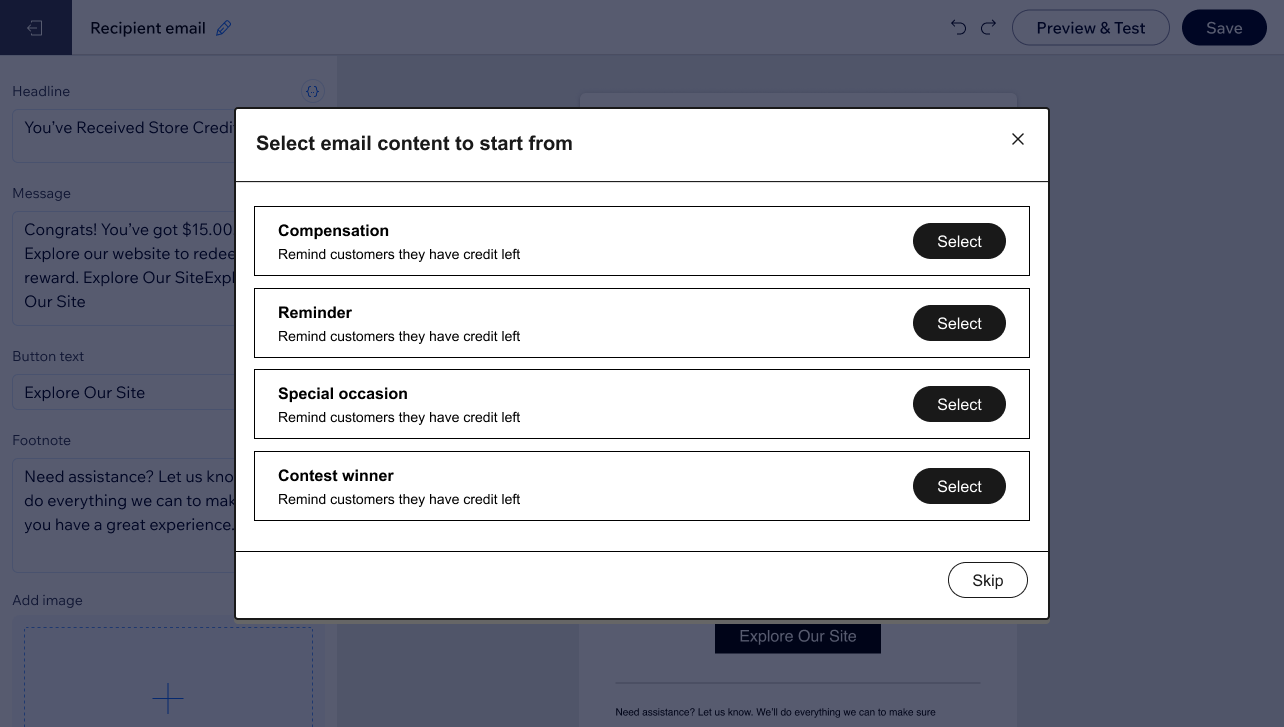
Exploring different templates ideas
Fixated yet customizable
Concluding all the above, we decided to go with a relatively fixated solution to reduce cognitive load and simplify setup while still catering to most current use cases and providing a sleek, easy experience. For more advanced customers, we included a code editor option to enable advanced customizations. This approach allowed us to meet the needs of both beginner and advanced users. Additionally, we ensured support for third-party providers to offer even greater flexibility.
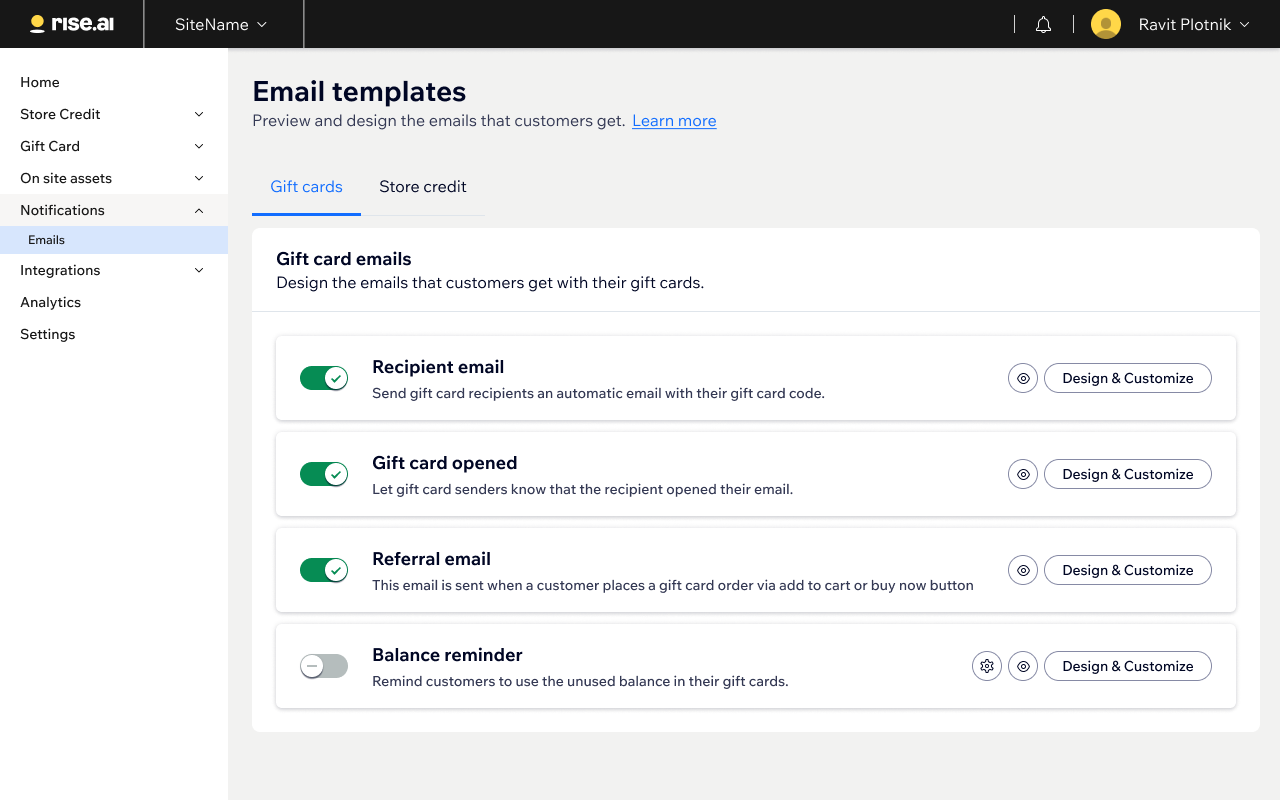
New email notifications entry point
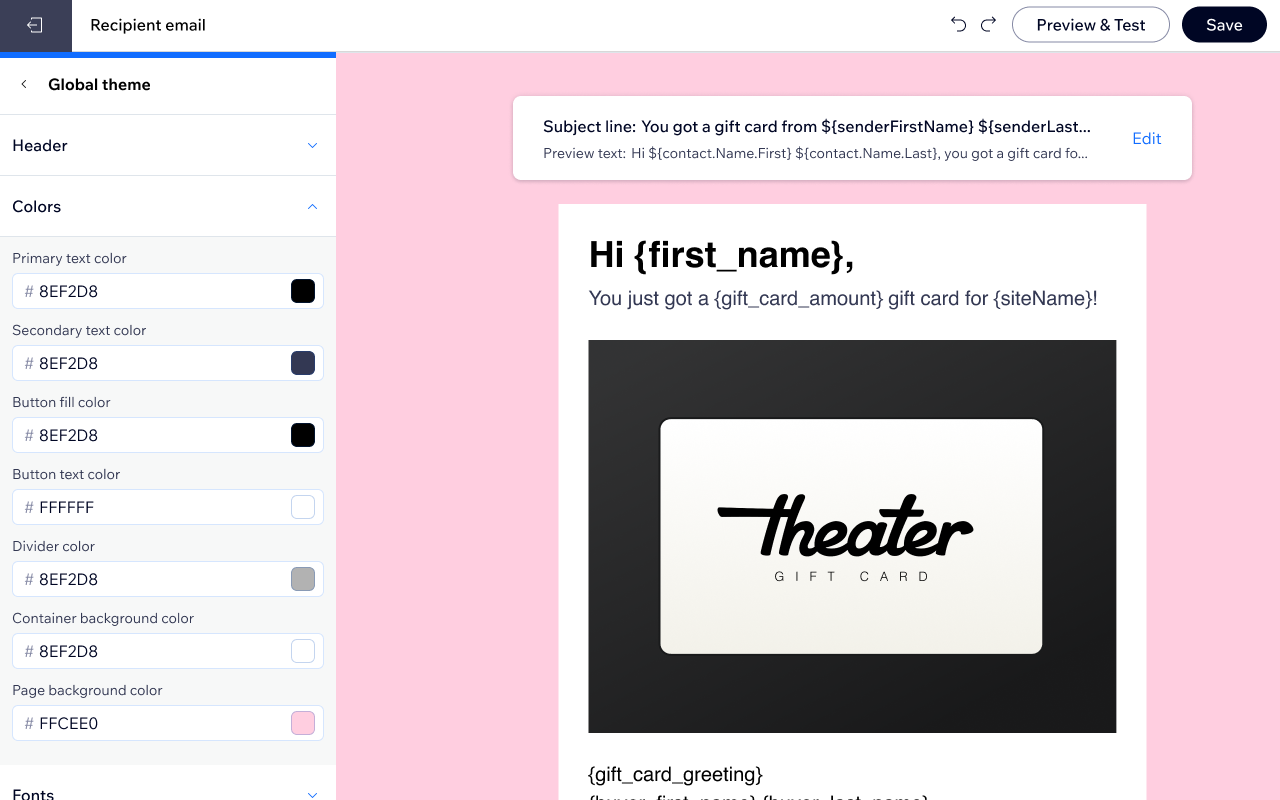
A glimpse into the new email builder